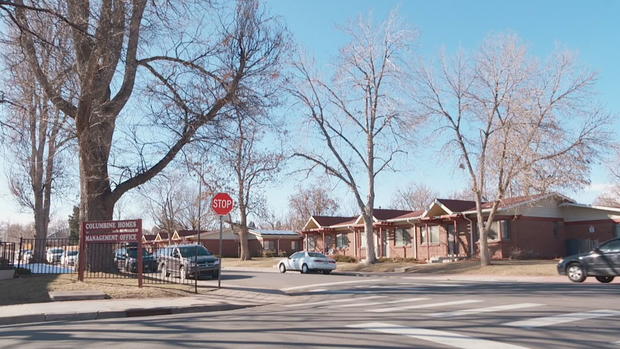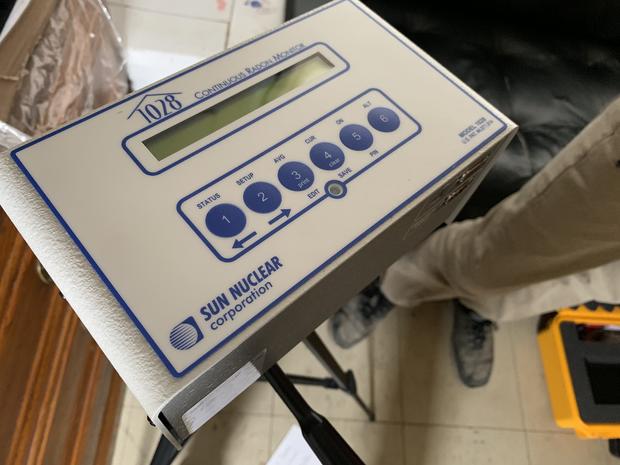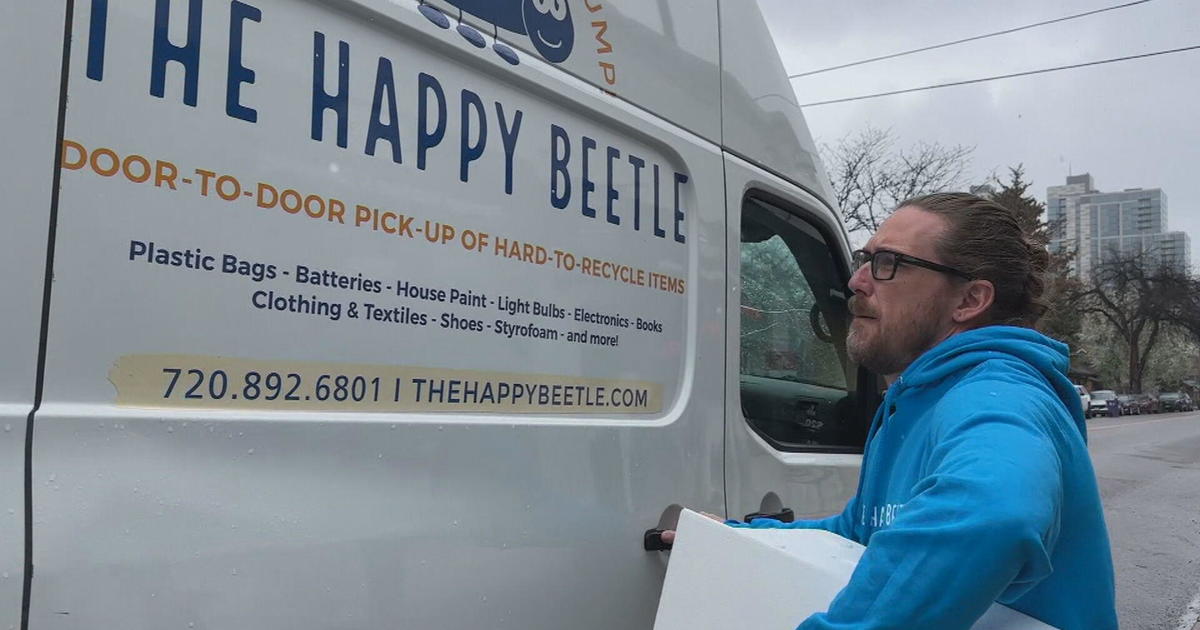Denver Housing Authority To Begin Testing All Of Its Public Housing Complexes For Radon
DENVER (CBS4) - More than a year after CBS4 Investigates found elevated radon levels in some of the Denver Housing Authority's public housing units, the agency says it will begin a year-long effort to test all of its complexes for the toxic gas. DHA says it has set aside $250,000 for the testing project, which will begin this month.
Radon is an odorless, naturally occurring gas, that when trapped inside a home, can cause lung cancer to those who breathe it over long periods of time.
DHA Director David Nisivoccia says a third-party environmental firm has written up a set of formal Standard Operating Procedures to give DHA a road map to properly test all of its complexes. Read the full set of procedures here.
"The plan is to start with community spaces, because obviously they're usually on ground floor levels, and we'll look at garages... then we'll transition into our high rises, and then we move into our row homes, and then into our dispersed sites, which are typically single family homes," Nisivoccia said.
Asked how residents will be made aware of the results, Nisivoccia said, "a couple pathways; number one is... we'll interact with the resident council boards and share the results with them, and then they advocate for the rest of the client base, but additionally, we'll have a copy of the results in the management office at that property for any resident who wants to inquire about it, wants to look at it, or wants to study it."
If high levels are found, the Standard Operating Procedures dictate DHA must conduct follow-up testing. If high levels are still found, DHA will take proper mitigation actions.
However, Nisivoccia says DHA does not yet have money set aside for possible mitigation needs.
"We're going to have to procure that," Nisivoccia said. "One of the things I want to do is seek more additional funding from HUD; they don't provide any guidance, they don't provide any funding for this effort, and I think it's an important health issue, so we're going to talk to HUD and see if we can get additional monies."
Back in February 2020, CBS4 Investigates found elevated levels of radon in some public housing units. CBS4 Investigates hired a nationally-certified testing agency, Area 5280 Home Inspections, to put sensors in five units of two different Denver public housing communities: Columbine Homes and Westridge Homes.
Both of the results in the Columbine Homes complex were twice the EPA's safe indoor radon limit, which is 4 picocuries per liter. The two results were 8.4 pCi/l and 7.8 pCi/l.
In the Westridge Homes complex, one result was just under the EPA's limit, at 3.2 pCi/l. Two other results were far below the limit, at 1.0 pCi/l and 0.7 pCi/l.
Tony Sutherland, the owner of Area 5280 Home Inspections, conducted the testing for the CBS4 investigation.
"I'm actually a little angry that for so long people have lived under these conditions and there hasn't been a flag," Sutherland said in February 2020. "The state needs to get involved, and something needs to be put in place to benefit these folks."
Maria Chacón, a retired waitress, lives in the unit in the Columbine Homes complex where the highest level of radon was found. She said the findings were concerning, especially given she's lived in her unit for the last 12 years.
"It's very dangerous, but I don't have too many options at my age," Chacón told CBS4 Investigator Kati Weis in an interview translated from Spanish in February 2020. "The enemy is what's coming out from the earth and it's invisible."
In the course of the CBS4 investigation, DHA said it would be spending $9,360 to have an environmental firm draw up the Standard Operating Procedures to help determine the best path forward for testing and mitigation.
The creation of the Standard Operating Procedures was delayed due to COVID-19, leaving some residents, like Chacón, at risk for radon exposure throughout the pandemic. Originally, the procedures were supposed to be complete in May 2020.
Asked if he was concerned about the delay having negative health effects on DHA residents, Nisivoccia said, "I would say there's always concern regarding any health issue, but I think people would understand with COVID-19, the priority was ensuring that people stayed in the house and they weren't homeless... I think it's a wise decision, doesn't mean that we weren't happy that we couldn't address it, but I thought the overwhelming circumstances of COVID out wrote everything else."
But CBS4 Investigates wanted to know if DHA had distributed any informational materials during the pandemic to warn residents of possible radon risks, to help people be more cognizant of keeping windows open, or other actions to air out their units while stuck at home during the constraints of the pandemic.
DHA says it met with residents of Westridge Homes prior to the pandemic about radon concerns. But, during the pandemic, no further educational materials were distributed.
"In 2020, COVID-19 consumed the world, business operations, and DHA anticipated obtaining third party radon recommendations," a spokesperson for DHA said to CBS4 in an email.
The spokesperson says when a resident's unit is scheduled for the upcoming testing, they will receive this educational guide.
"In 2021, with our established third party Radon Standard Operating Procedures (SOP), the EPA Citizen's Guide to Radon The Guide to Protecting Yourself and Your Family from Radon is distributed to property managers and residents for their awareness and education as their unit is scheduled for inspection," the spokesperson said.
Moving forward, Nisivoccia says there will be more communication with residents.
"I'm happy that we're in a position now that we can address it, and we're going to work through it effectively, efficiently, and with open-wide communication with our residents," Nisivoccia said. "And, have a healthier, happier, safer place for our residents to live."





